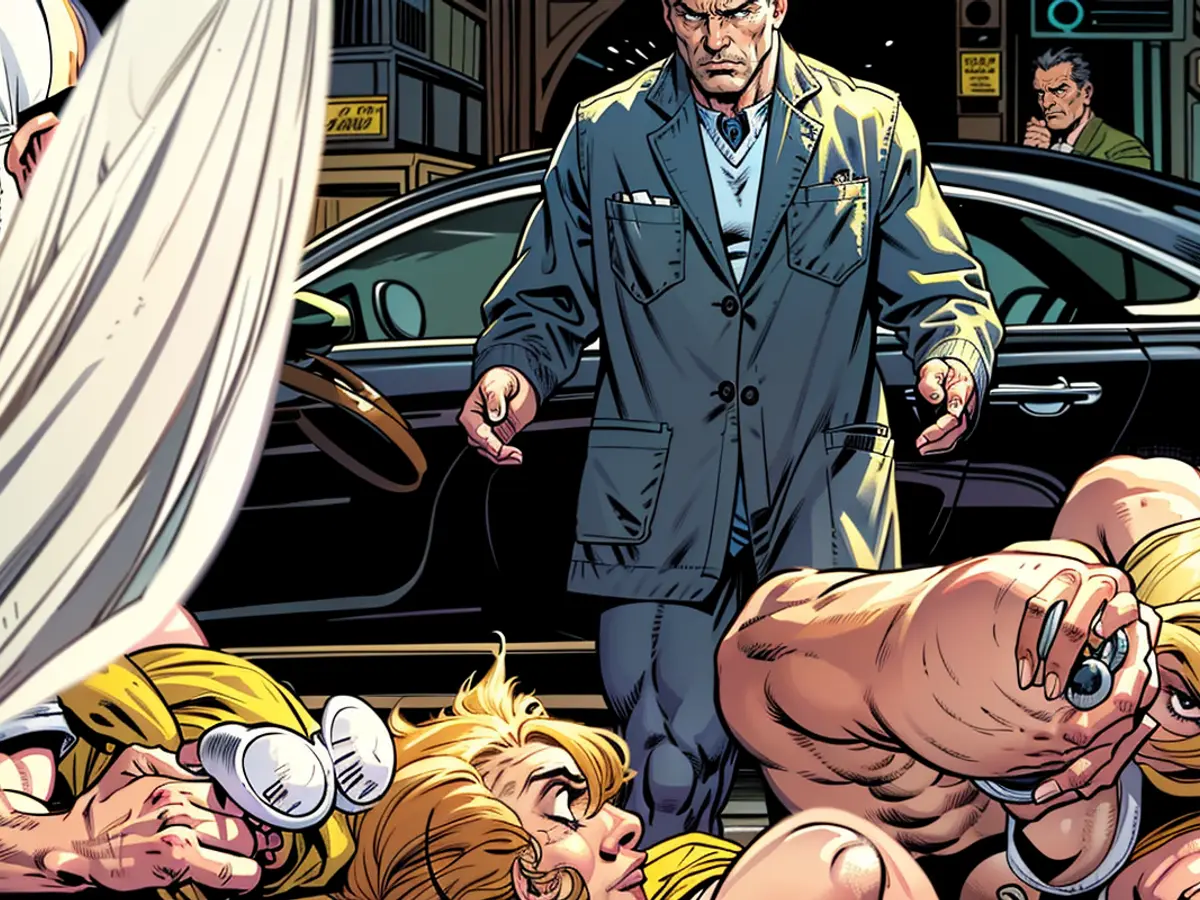- Sovereign Sympathy: Prince Charles Pays a Visit to the Sites of Suffering
Deep Sorrow and Unease. The intensity of these emotions in Southport ought to be palpable to King Charles III during his visit to the town in northwest England. The city center is filled with mountains of flowers, plush toys, and balloons, frequently showcasing the color pink. These items function as tributes to the three girls who were brutally stabbed to death there approximately three weeks ago, leaving eight other children injured. The King engages with some of these kids, eager to learn about their ordeals directly.
The 29th of July exposed deep fissures in the British society. King Charles' visit to Southport serves not only as a symbol of his condolences yet also an attempt to convey the nation's sympathy towards the town. The horrific attack diverted the focus away from the young victims and their devastating impact on families and communities in Southport, a city home to approximately 90,000 inhabitants. Radical right-wing groups hijacked the remembrance, inciting mob violence in various cities throughout the nation daily for over a week, stoked by allegations of immigrants taking up housing.
The animosity stemmed from misinformation spread on social media, falsely claiming that the Southport attacker was a Muslim migrant. High-profile accounts amplified these false narratives. Despite prompt identification of an 18-year-old British-born suspect with Rwandan parents by the police, the rioters persisted. Far-right figurehead Nigel Farage even suggested that the authorities might be lying, further inflaming the already volatile situation.
Cities like Hartlepool, London, Middlesbrough, Liverpool, Belfast, Bristol, Rotherham, and Plymouth became targets, with asylum seeker accommodations often in the crossfires. Over a hundred police officers were injured as they struggled to keep the rioters at bay, who indiscriminately set cars on fire and looted stores. A video showing a man stopping vehicles and questioning the nationality of their occupants also triggered widespread concern.
Eventually, the peaceful majority took a stand. Thousands protested in numerous cities against violence and for tolerance. Suddenly, images of residents banding together to clean up the chaos and share food and drink in mosques dominated the media, symbolizing unity and solidarity.
King Charles refers to these actions of unity and resilience when he voices his approval of these expressions of communal spirit. The extremist acts of a minority were met with the passion and resistance of the majority, as per the royal communique.
In Southport, the crowd welcomes the King with thunderous applause. Charles aims to reaffirm his message of unity and mourn together for Bebe (6), Elsie (7), and Alice (9). The girls had been attending a Taylor Swift dance class, intended to be a fun break from the routines. That's when the knife attack occurred. Even the renowned American singer, whose concert was to celebrate the event in London's Wembley Stadium, met with survivors before her performance. In the British capital, Charles will also meet with the families of the deceased tomorrow.
The wounds inflicted by the attack and the subsequent riots may take a considerable amount of time to heal. Fear gripped many members of the Muslim community, leading to reluctance to venture out into the streets. Various religions are deeply cherished by King Charles, as he has often expressed.
Where the King endeavors to comfort and console, the British government primarily seeks justice. Prime Minister Keir Starmer, formerly the chief of the Crown Prosecution Service, had already called for the troublemakers to be publicly named and condemned during the riots: "Name and shame." Anyone interested in learning about the convicted offenders can access information on the BBC website, which separates the cases into sections such as "long sentences," "online offenses," and "women."
The legal system has been in continuous operation for several days, convicting several offenders daily, some in front of live audience. A 38-year-old father, who hurled bricks and bottles at police, was sentenced to two and a half years in prison. A mother of six, who threw a brick at police and incited a teenager to similar actions, was sentenced to two years in prison. The judge emphasized that a suspended sentence would be too lenient.
By now, the police have apprehended over 1,000 suspects, including countless juveniles, with the youngest being two 12-year-old boys and a 13-year-old girl. In England, legal accountability begins at the age of 10.
The harsh approach is intended to act as a deterrent. However, experts argue that this approach does not address the underlying causes of the violence. By labeling the offenders as "thugs," Starmer is effectively othering the problem, according to sociologist Aaron Winter of Lancaster University, speaking to the German Press Agency. This implies that the offenders are alienated from society. The task of healing and unity is far from over, even for the King.
Following the chaos, King Charles III recognizes the importance of visiting not just the victims' families in London, but also the community of Southport, deeply affected by the tragedy. His visit to The United Kingdom aims to show solidarity and support for the grieving town.
The aftermath of the attack and the riots exposed a divide in The United Kingdom, but the display of unity in Southport and other cities has brought hope to King Charles III, signifying the resilience and strength of the British people.








